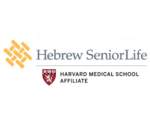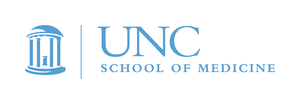Research
BASIL I + II
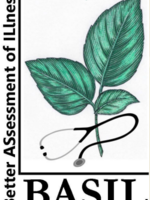
Delirium is a common syndrome affecting older persons, associated with a high mortality rate and dramatically increased costs.
The BASIL (Better ASsessment of ILlness) study presents an innovative effort to advance the conceptualization and measurement of delirium severity. Unique strengths include the diverse cohort with complete high quality data and longitudinal follow-up, along with detailed collection of multiple delirium measures daily during hospitalization.
With BASIL I, we developed a delirium severity measurement tool (DEL-S) which is essential to understand its clinical course, recovery, and response to treatment. With BASIL II, we hope to validate the DEL-S along with a related version (DEL-S-AD) to measure delirium severity in patients with Alzheimer's Disease and Related Dementias (ADRD). The study includes patients with and without ADRD. Assessments are conducted in a prospective cohort of 150 medical patients at BIDMC.
SAGES I + II
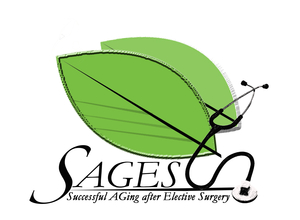
The SAGES (Successful Aging after Elective Surgery) study was designed to examine novel risk factors and long-term outcomes associated with delirium.
Participants were assessed preoperatively, daily during hospitalization, and at variable monthly intervals for up to 36 months post-discharge. Delirium was assessed in hospital by trained study staff. Study outcomes included cognitive and physical function. Novel risk factors for delirium were assessed including genetic and plasma biomarkers, neuroimaging markers, and cognitive reserve markers.
The following SAGES II study is a prospective observational cohort study of community-dwelling adults age 65 and older undergoing major non-cardiac surgery. SAGES II was designed to examine the relationship between delirium and Alzheimer's disease and related dementias (AD/ADRD), by capturing novel fluid biomarkers, neuroimaging markers, and neurophysiological measurements. Participants were assessed preoperatively, throughout hospitalization, and at 1, 2, 6, 12, and 18 months following discharge to assess cognitive and physical functioning.
READI + READI-SET-GO
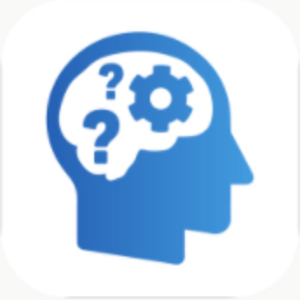
The READI (Researching Efficient Approaches to Delirium Identification) study, tested the implementation of a brief app-directed protocol for delirium identification by physicians, nurses, and certified nursing assistants (CNAs) in real-world practice relative to a research reference standard delirium assessment (RSDA).
PIs Donna M. Fick and Edward R. Marcantonio developed and tested a two-step protocol (UB-CAM) for identifying delirium in hospitalized older adults. This multi-site study took place in Pennsylvania and Massachusetts. The study enrolled 527 patients, avg. age 80 years, 35% with ADRD, at 2 study hospitals, performed reference standard delirium evaluations on 924 hospital days (153 with delirium), followed by blinded UB-CAM App-directed assessments by clinicians. The UB-CAM was feasible (97% completion rate), brief (average 1 min 15 seconds), had overall accuracy of 89%, and performed well by all disciplines.
While READI substantially advanced the field, it did not test full scale implementation of screening among all hospitalized older adults. In READI-SET-GO, we will integrate daily delirium screening using the UB-CAM into routine care for every older adult admitted to 6 acute medical/surgical units at 3 hospitals in 2 states. We will conduct a stepped-wedge implementation design, where UB-CAM screening will be launched at a new unit every 6 months over a 42-month study. We will utilize evidence-based implementation strategies and test fidelity, accuracy, sustainability, and impact.
PANDORA
 The PANDORA (Prophylactic 6- hourly intravenous AcetaminopheN to prevent postoperative Delirium in Older caRdiac surgicAl patients) study is a prospective, multicenter, randomized, placebo controlled, triple-blinded trial being conducted at nine medical centers across the US with Beth Israel Deaconess Medical Center (BIDMC) as the coordinating center. Drs. Bala Subramaniam, Edward Marcantonio, and Daniel Talmor are the Principal Investigators, with Dr. Marcantonio focusing on the neurocognitive outcomes—delirium incidence, severity, and long term cognitive change.
The PANDORA (Prophylactic 6- hourly intravenous AcetaminopheN to prevent postoperative Delirium in Older caRdiac surgicAl patients) study is a prospective, multicenter, randomized, placebo controlled, triple-blinded trial being conducted at nine medical centers across the US with Beth Israel Deaconess Medical Center (BIDMC) as the coordinating center. Drs. Bala Subramaniam, Edward Marcantonio, and Daniel Talmor are the Principal Investigators, with Dr. Marcantonio focusing on the neurocognitive outcomes—delirium incidence, severity, and long term cognitive change.
Postoperative delirium is common among older cardiac surgery patients. Often difficult to predict and prevent, delirium complicates the postoperative course of up to 40% of older cardiac surgery patients. Delirium is associated with increased morbidity and mortality and prolongs both intensive care unit (ICU) and overall hospital length of stay. PANDORA studies the effect of scheduled 6-hourly intravenous acetaminophen administration for 48 hours (a total of 8 doses) in adults aged 60 or older undergoing cardiac surgery with cardiopulmonary bypass (CPB). The primary outcome is the incidence of in-hospital delirium. Secondary outcomes include duration and severity of delirium, rate and dose of rescue analgesic (opioid) consumption, acute and chronic pain scores, lengths of ICU and hospital stay, and long term cognitive change measured by the telephone-Montreal Cognitive Assessment (MoCA) performed prior to surgery and again at 6 and 12 months following surgery.
NIDUS

NIDUS is a collaborative, multidisciplinary network dedicated to the acceleration of scientific discovery in delirium research, through focused collaboration and creation of sustainable infrastructure to enhance innovative and high-quality research. NIDUS was created in response to a call from the National Institutes on Aging to support a collaborative network to advance scientific research on the causes, mechanisms, outcomes, diagnosis, prevention, and treatment of delirium in older adults.
Collaborations
